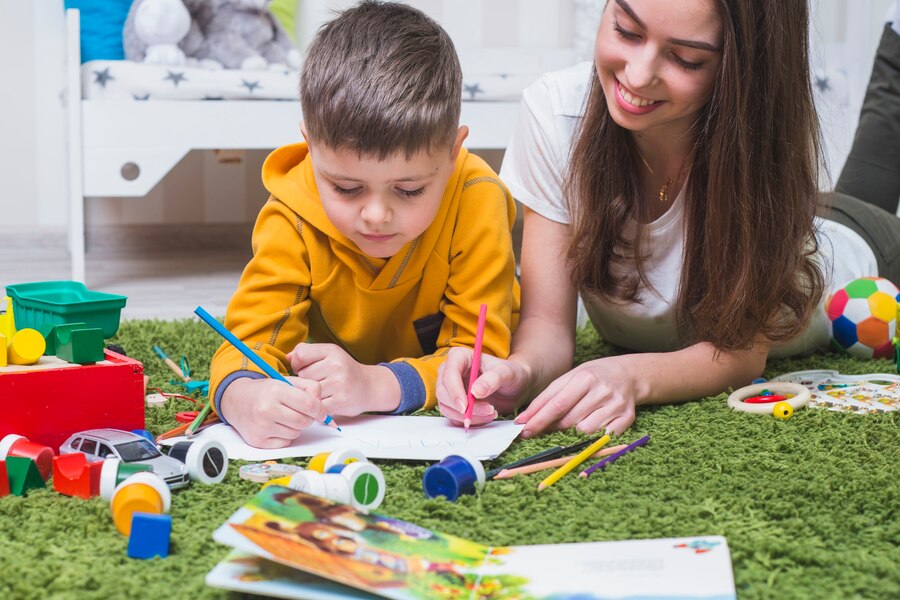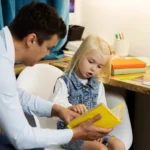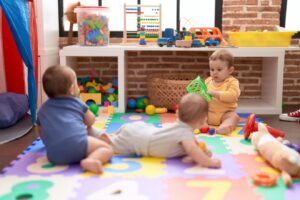
At Love2Learn Preschool in Mechanicsburg, PA, we believe that before children can fully thrive in an academic environment, they must first feel a deep sense of love, safety, and belonging. This philosophy is rooted in attachment theory, which is essential to understanding how children learn and develop. Inspired by the principles outlined in Gabor Maté’s book Hold Onto Your Kids, we focus on building strong, meaningful connections with each child to support their emotional and cognitive growth.
Why Attachment Matters in Early Childhood
According to Gabor Maté, children are naturally inclined to look to their caregivers for guidance, security, and love. When children feel secure in their relationships, they are more likely to respond positively to discipline, structure, and learning opportunities. However, when that sense of attachment is weak or missing, children may struggle to follow directions, manage their emotions, or engage in the learning process. This is why it’s crucial to establish a nurturing environment where children can build trusting relationships before expecting them to absorb new information.
At Love2Learn, our team is committed to fostering these essential bonds. We know that children who feel connected and supported are more likely to excel not only socially but also academically. This core belief drives everything we do—from the design of our classrooms to the way we interact with each child and their family.
Creating a Loving Environment for Growth
At our preschool, we prioritize creating a loving atmosphere that promotes attachment and emotional well-being. Here’s how we incorporate attachment-based practices into our daily routines:
- Responsive Caregiving: Our teachers are trained to be responsive to each child’s unique emotional needs. We observe, listen, and respond with care and empathy, ensuring every child feels seen and heard.
- Individualized Attention: By maintaining small class sizes, we can give each child the attention they need to feel connected. This one-on-one interaction helps children feel secure and builds trust.
- Consistent Routines: Routine and consistency are key to helping children feel safe. When they know what to expect, they are more likely to feel calm and ready to learn.
- Family Partnerships: We collaborate closely with families to strengthen the child’s sense of security both at school and at home. This partnership creates a cohesive support system that reinforces positive attachment.
The Impact of Love and Belonging on Learning
Research shows that children learn best when they feel emotionally safe. At Love2Learn, we believe that when children feel loved and supported, their brains are primed for learning new skills and concepts. Our curriculum is designed to engage children in meaningful, hands-on activities that stimulate curiosity while also providing the comfort of a secure, loving environment.
We help children navigate their emotions, build healthy relationships with peers, and develop the social-emotional skills needed for future academic success. By focusing on attachment and emotional well-being, we ensure that our students are ready to take on new challenges with confidence and joy.
Love2Learn: Where Children Grow Through Connection
Choosing a preschool is an important decision, and at Love2Learn, we prioritize your child’s emotional and academic success. Our focus on love, attachment, and learning creates a nurturing environment where your child can thrive. We invite families in Mechanicsburg and surrounding areas to experience the Love2Learn difference, where your child will feel a strong sense of belonging and be set on the path to lifelong learning.
Ready to learn more about how Love2Learn can support your child’s development? Contact us today or schedule a tour to see how we can partner with you in providing your child with the love and guidance they need to grow.
Bibliography
Maté, Gabor, and Gordon Neufeld. Hold Onto Your Kids: Why Parents Need to Matter More Than Peers. Vintage Canada, 2005.
National Scientific Council on the Developing Child. “The Science of Early Childhood Development.” Harvard University, Center on the Developing Child, 2007, https://developingchild.harvard.edu/resources/inbrief-science-of-ecd/.
Shonkoff, Jack P., and Deborah A. Phillips, eds. From Neurons to Neighborhoods: The Science of Early Childhood Development. National Academy Press, 2000.
Swim, Terri Jo. Infants, Toddlers, and Caregivers: Caregiving and Responsive Curriculum Development. Cengage Learning, 2019.





